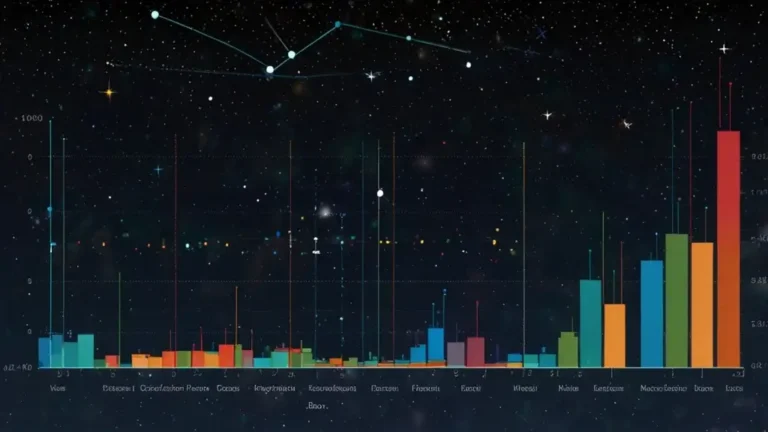Scientific Method
The scientific method comprises a systematic set of approaches that produce scientific knowledge. It offers direction on conducting accurate observations, analyzing data, and generalizing those conclusions. Researchers can employ the scientific method to evaluate ideas and results, facilitating open discussion, adjustments, or improvements.
The scientific method must have four distinct qualities.
Characteristics of Scientific Method
Reliability
Reproduction is a key strength of the scientific method. When others are able to replicate the same process and achieve comparable outcomes, the credibility of the findings is enhanced. This enables scientists to build upon one another’s work and ensure the knowledge acquired remains consistent.
Precision
Theoretical ideas that are challenging to quantify must be stated clearly to enable others to measure and evaluate them within the theoretical framework. Clear definitions are essential in the scientific method, particularly when dealing with abstract concepts. These definitions need to be extremely precise, just like a recipe, so that anyone who follows them can achieve accurate measurements.

Falsifiability
A theory should be formulated in a manner that allows for potential objections. Scientific theories must be testable and falsifiable in order to be considered valid, as they are the foundation of scientific knowledge. A hypothesis that is poorly defined or contains ideas that cannot be properly assessed is untestable, hence categorizing it as non-scientific. Sigmund Freud‘s concepts regarding psychoanalysis fall within this category and are not regarded as a “theory”. Psychoanalysis can be effective and beneficial in resolving particular situations.
Parsimony
When confronted with several explanations for a phenomena, scientists should consistently adopt the simplest or most logically economic explanation. This concept is referred to as parsimony. Scientists are careful about pursuing theories that are overly complex or unusual, as they prefer to focus on concepts and relationships that provide specific explanations rather than trying to explain everything in a general sense.
To qualify as a “science,” a subject of study must conform to the principles of the scientific approach and permit the evaluation of its core laws and ideas. Theology, which centers on the examination of religion, is not classified as a science. Theological ideas, such as the presence of God, cannot be evaluated by impartial observers by a technique that is reproducible, exact, falsifiable, and parsimonious. Likewise, music, arts, humanities, literature, and law are not categorized as sciences, despite their inherent creativity and significance.
In the field of social sciences, the scientific method encompasses a variety of research methodologies, instruments, and strategies. This include the collection of qualitative and quantitative data, execution of statistical analyses, performance of experiments, administration of field surveys, and undertaking of case studies, among others.
The scientific method primarily emphasizes the practical elements of research, including observation, data analysis, and interpretation. A minimal portion of this methodology relates directly to the theoretical dimension, which is clearly the most complex element of scientific inquiry (Anol Bhattacherjee, 2012).
Generalization in Scientific Process
Generalization is essential to the overall scientific methodology. In an ideal situation, it would be beneficial to sample the entire population to evaluate a hypothesis. All conceivable variants of independent variables will be employed. In many instances, achieving this is unfeasible; instead, a representative group is chosen to effectively reflect the whole population.
For any experiment, it’s important to consider potential criticisms regarding the generalization of the sample, time, and size.
- We must ensure that the sampling group accurately represents the overall population.
- In conducting experiments, timing is crucial as behavior can vary on a yearly, monthly, or even hourly basis.
- The group size must be sufficiently big to guarantee that the statistics may be reliably generalized to the total population.
Statistical Generalization
Statistical generalization involves the scientist drawing conclusions from a limited number of observed cases and then applying those conclusions to all other unobserved cases that fall into the same category. The population or universe is the total number of cases, whereas the sample is the collection of a small number of observations. Statistical generalization is a crucial component of the scientific process.
Based on a small set of observations, known as the sample, we can draw conclusions that apply to the entire population, encompassing all the units that could be observed. We sample and generalize for various reasons, such as cost efficiency, speed in obtaining information, or to avoid interfering with the phenomenon being studied.

Generalization in the Social Work Research Process
Social workers explore a complex world in order to understand and address social problems. Generalization is an essential aspect of the scientific process and plays a vital role in this pursuit. It enables us to go beyond individual cases and recognize broader patterns that shape our practice.
Generalization is the process of making conclusions about a larger group by examining a smaller subset of that group. Using accurate research methods, such as controlled experiments or well-designed surveys, we gather data on specific groups or situations. Through careful analysis of these findings, we can uncover hidden patterns and connections. If the research design is solid and the sample is representative, we can cautiously apply these patterns to a wider population.
The Importance of Generalizability in Social Work
Generalization provides social workers with numerous benefits and advantages. It enables us to;
- Build Evidence-Based Practices: Through a comprehensive understanding of the factors that contribute to social problems and the effectiveness of interventions, we may build a strong basis for successful practice and move beyond depending just on our own experiences.
- Contribute to Policy Decisions: Research findings that can be applied broadly can help shape social policies that serve the needs of large populations.
- Shape Interventions Effectively: By identifying risk and protective variables, treatments may be adapted to address the specific requirements of various client groups, hence enhancing their efficacy.
Conclusion
The scientific method, with its focus on observation, hypothesis testing, and data analysis, serves as the foundation for scientific discovery. Generalization is an important step in this process as it enables researchers to apply the knowledge gained from specific studies to larger populations. Through careful analysis and thoughtful consideration, scientists can construct a strong foundation of knowledge that goes beyond specific cases and uncovers universal truths about the natural and social world. This broad understanding of information catalyzes advancements in different areas, such as social work. It is crucial in formulating evidence-based strategies and impacting governmental decisions intended to improve individual wellbeing.






